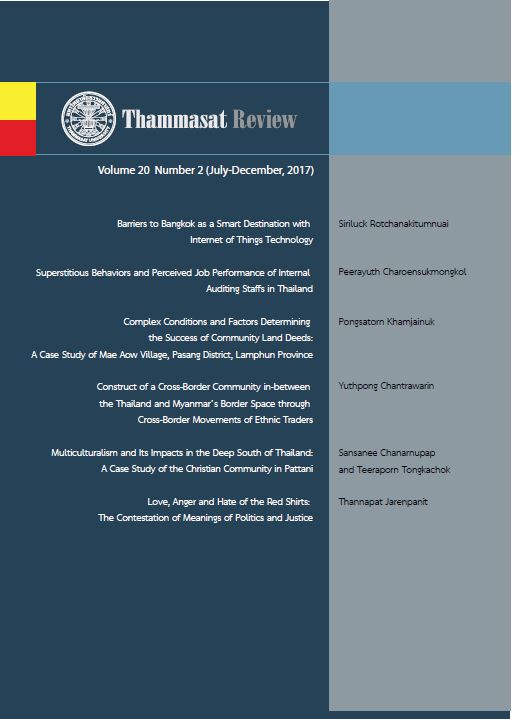Multiculturalism and Its Impacts in the Deep South of Thailand: A Case Study of the Christian Community in Pattani
Keywords:
Christian community, Multiculturalism, Deep South of ThailandAbstract
This paper is based on a qualitative study of the Christian community in Pattani focusing on the impact of multicultural policies on them. The research methodology comprises of documentary and field research. Forty key informants generate the core data for the study. The research found that since the violent situation in 2004, the awareness of cultural diversity in the deep south of Thailand has been increasing significant. Although southern violence has occurred due to several factors, it is argued that the main driver of the Pattani insurgency is the loss of identity of the local people. Nowadays, there is a global awareness of cultural differences, mutual respect, and acceptance to subordinate groups, and all are considered foundations for peace in the world. Accordingly, the bureaucratic policy applied to this area has brought about change. This has led to a major cultural shift away from policies of ‘assimilation’ to the introduction of ‘multiculturalism’. This has created a public space for subordinate groups such as the Christian community and made them more visible in Pattani civil society. In the age of globalization, cultural diversity is regarded as unsurprising and commonplace. The question is no longer whether this is good or bad. Rather, the challenge is to seek social integration. The researcher scrutinizes that social integration means not simply mutual respect and tolerance between different groups but continual interaction, engagement and civic participation. Accordingly, in the politics of social integration, it is debatable that calling for improving opportunity and greater interaction between people of different backgrounds as a peaceful strategy in the deep south of Thailand would lead us towards a society where cultural diversity does not determine our destiny.
Downloads
Published
How to Cite
Issue
Section
License
The opinions and ideas expressed in all submissions published in Thammasat Review are solely that of the author(s) and do not necessarily reflect that of the editors or the editorial board.
The copyright of all articles including all written content and illustrations belong to Thammasat Review. Any individuals or organisation wishing to publish, reproduce and distribute a particular manuscript must seek permission from the journal first.








